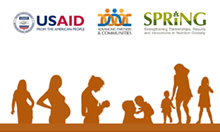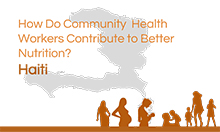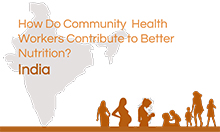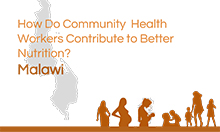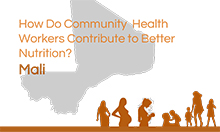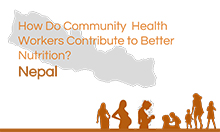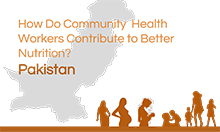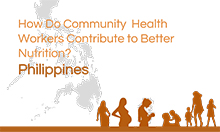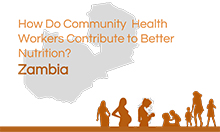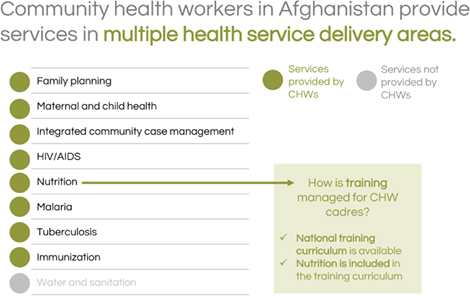
Community health workers (CHW) play a critical role in delivering evidence-based, cost-effective interventions that can improve nutrition outcomes. Information on the services that CHW provide is necessary to advocate for change in training, management, and supervision systems related to the delivery of nutrition services by CHWs but the diversity and magnitude of community health programs in a given country can make it hard to find. In collaboration with the USAID-funded Advancing Partners and Communities(APC) project, SPRING has gathered data around key nutrition responsibilities for CHW in 9 countries that can be used to advocate for increased commitment to nutrition in community health programs. The data identifies gaps in nutrition service delivery and helps program planners take action.
We invite government ministry staff and other in-country stakeholders to use these resources to better understand the situation in their country and advocate for needed changes. The PowerPoint files that can be used to as the basis for presentations while the accompanying PDF files can printed and handed out as part of a presentation or meeting.
How to use these slides:
In-country stakeholders can use this these materials to:
Identify which nutrition-related services CHWs can provide, according to policies; | |
Prioritize and/or reassign responsibilities to avoid overburdening CHWs; | |
Build a stronger foundation of policies, tools, and systems for CHWs to conduct their work; | |
Plan additional support to CHWs; | |
Design and conduct other in-depth assessments of community nutrition programs; | |
Inform program implementers to strengthen community health interventions. |
This product was developed using information collected by APC, with input from SPRING, through a desk review of existing policies and documents related to community health systems. Due to the diversity and magnitude of community health programs in a given country, we collected information based on country policies/strategies that comprise the key areas of a community health system and not the realities of program implementation. Due to funding and timing, we focused on national public sector programs, and only when possible, captured community-based private sector health programs operating at scale. We encourage updates and validation to specific local contexts.
